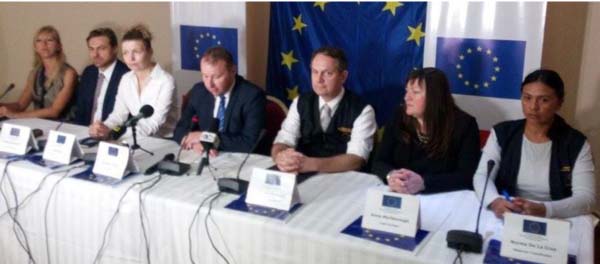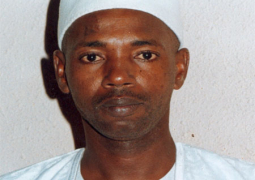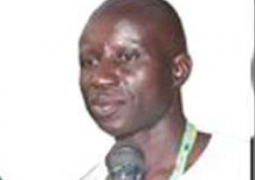
European
Union Chief Observer Miroslav Poche yesterday bade farewell to 14 long-time
observers (LTOs) from the European Union Election Observation Mission’s (EU
EOM) headquarters in Banjul to their respective areas of observation across the
country.
The
deployment ceremony was held yesterday at the Ocean Bay Resort in Cape Point,
Bakau.
In
accordance with the EU standard observation methodology, said Poche, it is
important for each EOM to have long-term, country-wide approach enabling a full
and sustainable analysis of an election not only in the capital, but also in
the regions.
The
14 long-term observers drawn from 13 EU member-states and Norway were deployed
on 21 March in multinational-teams of two throughout the country, he said.
He
noted that the role of LTOs is decisive in helping the mission to form a
balanced and comprehensive view of the elections across the country, as LTOs
assess what happens at the regional level while core team members analyze what
takes place at the national level.
“You
will personify the mission in the field, and your consolidated finding will
become an essential part of our overall assessment of these elections,” said Mr
Poche.
The
EU decided to establish an election observation mission for the parliamentary elections,
following an invitation from the Independent Electoral Commission of The
Gambia.
Fourteen
short-team observers will join the mission on 1 April, primarily to observe
proceedings on election day, the chief observer disclosed, adding that in the days
leading to the elections, a delegation of the European Parliament will also be
integrated into EU EOM, as well as locally-recruited short-term observers from
EU members states’ embassies accredited to The Gambia.
Around
election day, he continued, the mission will comprise up to 50 observers drawn
from the EU members states, as well as Canada, Norway and Switzerland.
Prior
to their deployment, the EU EOM LTOs received comprehensive briefings on a wide
range of issues, including the electoral process, the political environment and
the media landscape.
The
mission operates in accordance with the “Declaration of Principles for
International Election Observation, “adopted under the auspices of the United
Nations in 2015, and the observers are bound by a code of conduct that “assures
strict neutrality and impartiality in the course of their duties”.



